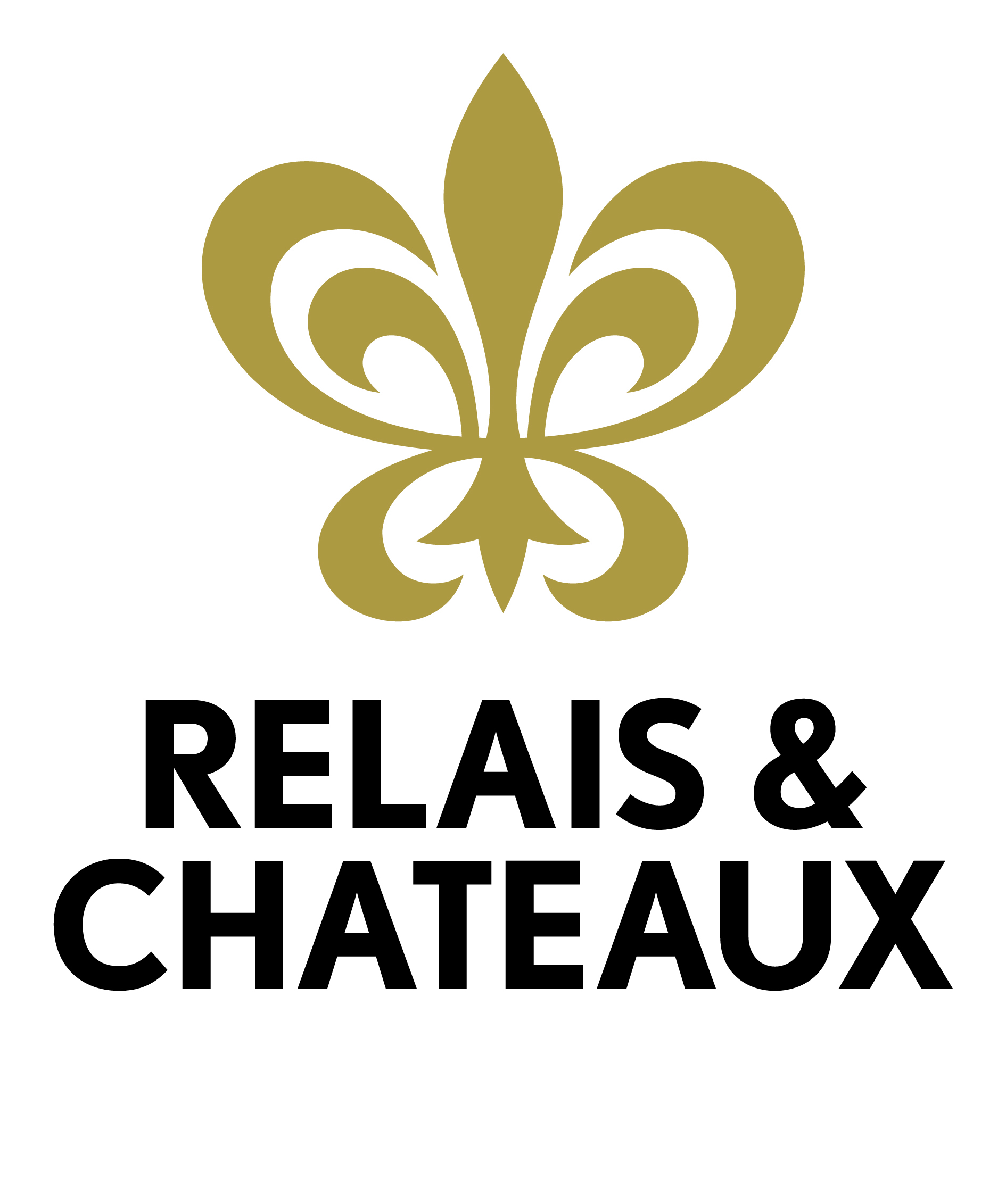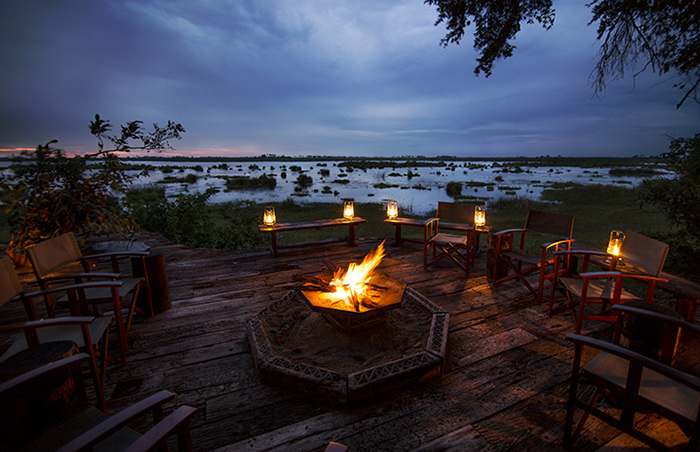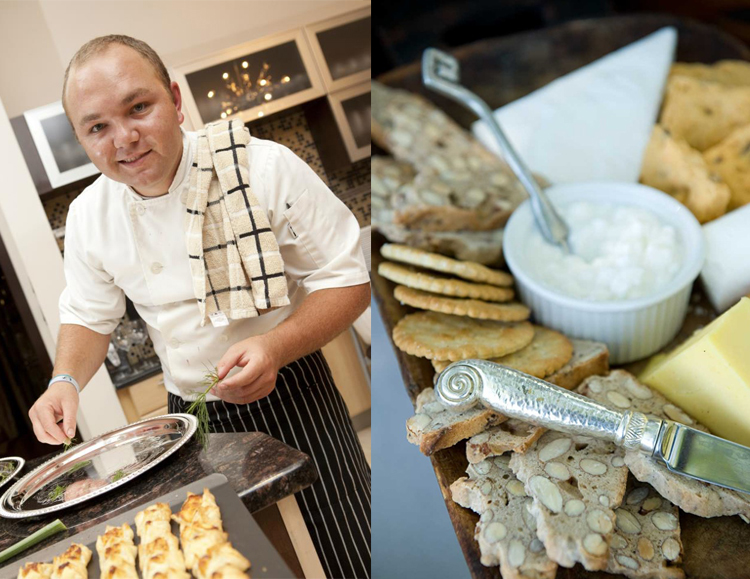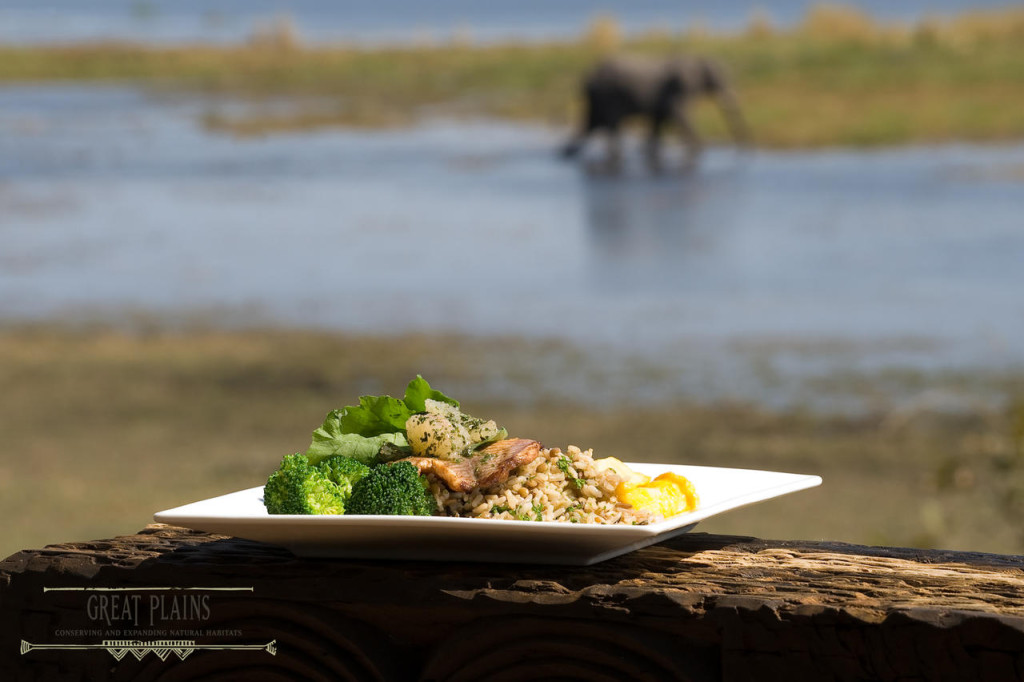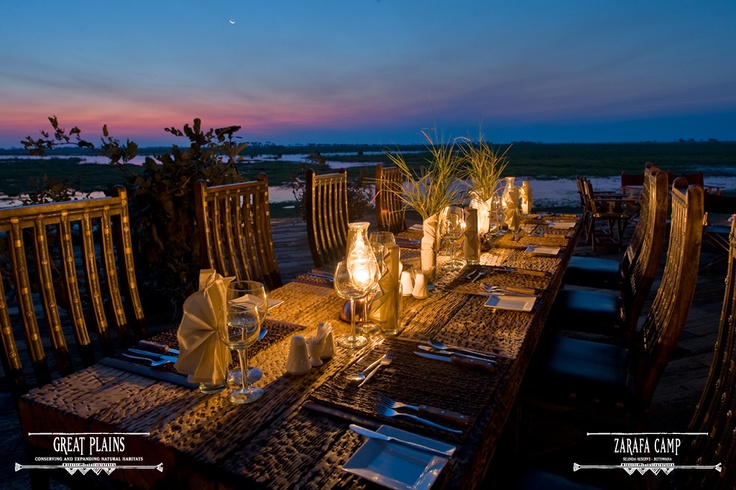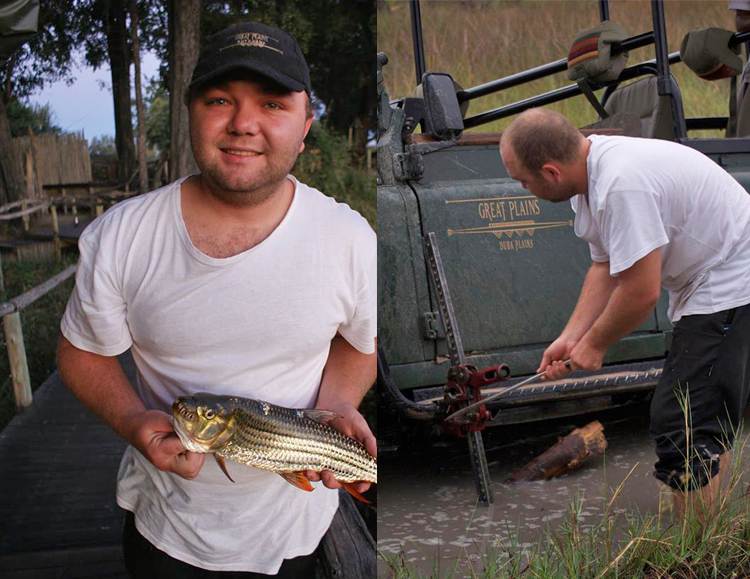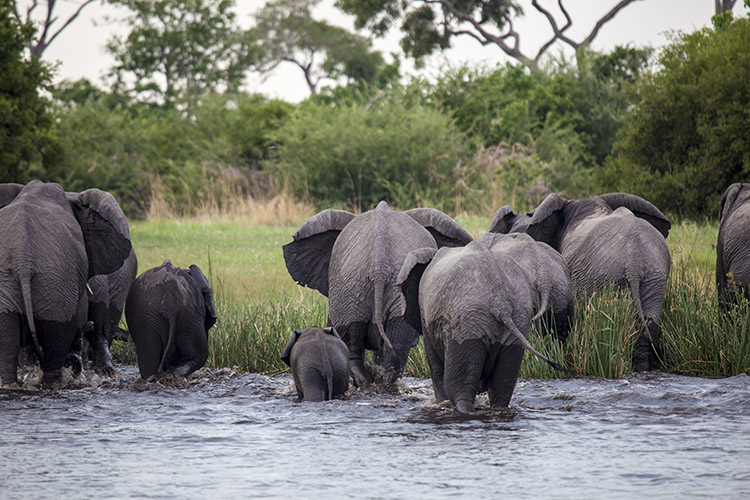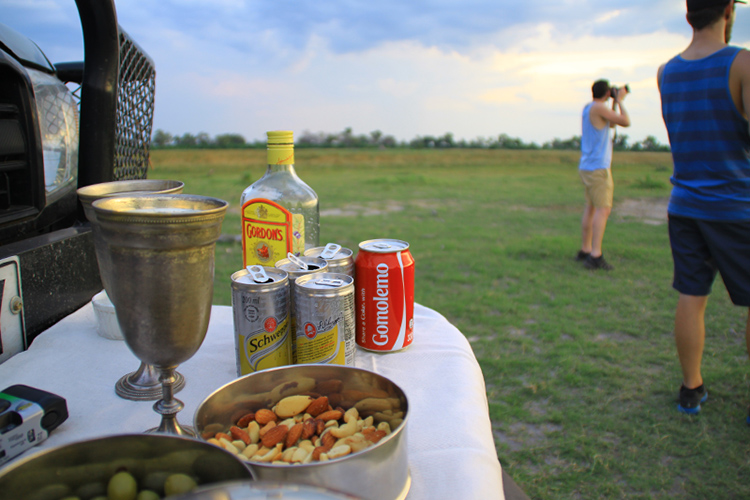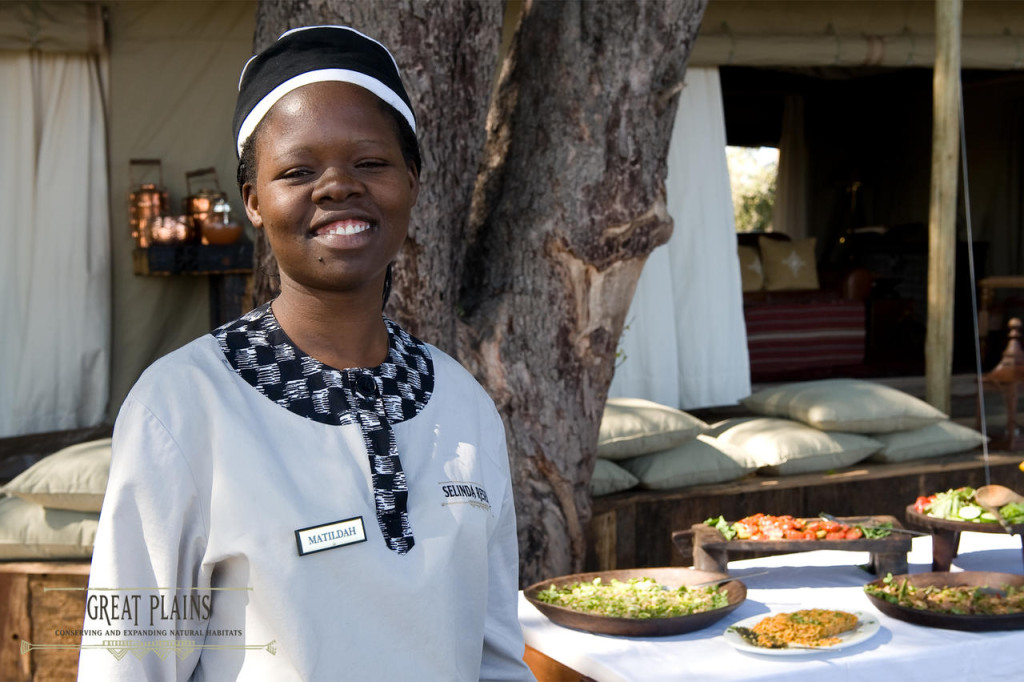There are three important rules for dining in the wild.
Rule one: There should be no distance between you and the wild at any time. Unless the wine is flowing a little too freely. Then keep your distance.
Rule two: There is no reason to dine poorly. Not even in the wild.
Rule three: This one comes from a man who knew both the wild and fine food and drink well – Ernest Hemingway. Be entirely present in the dining experience, don’t let either the food and drink or the surroundings cloud the other out. Or in his own words:
“Try to learn to breathe deeply, really to taste food when you eat, and when you sleep, really to sleep. Try as much as possible to be wholly alive with all your might, and when you laugh, laugh like hell. And when you get angry, get good and angry. Try to be alive…”
These are the rules we carry with us on safari in Africa. But perhaps the right person to explain the intricacies of the gourmet safari is a man like Pierre van Zyl, Executive Chef of Zarafa Camp in the Selinda Reserve.
Discover more about the wilderness dining experience and life behind the scenes in our 10 Questions with the Wild Chef of Botswana below.
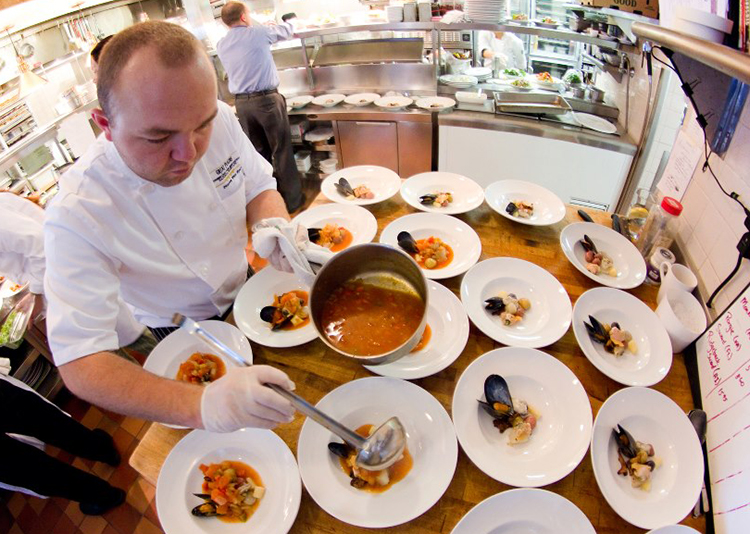
10 Questions with Pierre van Zyl
1. Five important things to remember when living in the wilderness?
-
- Always watch your back and remember these are wild animals.
- Get out. For me it is very important to take a step back once in a while and look at the amazing surroundings and the abundant wildlife around you. It keeps you sane and the fresh African air cleanses your soul. I try to experience the wildlife frequently and to understand how lucky we are to be able to work at a gem like Zarafa Camp.
- Stay hydrated. Water is gold and in the the harsh months when the temperatures get to 43 Celsius you need a lot of it.
- Mentally, you have to remember that you are in one of the most remote places in Botswana and that you have to do the best you can with what you have. As tough as it may be.
- Emotionally, it’s often best to just disconnect from life back home. Being away from family and friends, especially over celebrations and festive seasons, can be emotionally difficult. Hang in there and think about the time you will have to catch up with them when you go on holiday.
2. Five things being a chef, and particularly one in the remote stretches of Africa, has taught you about yourself, life and love?
-
-
- Being remote and far away from the “real world” has taught me that no matter how creative you think you are, you need to be even more so out here.
- No matter how hectic it gets, there are far worse places to be.
- Being so remote and having to cook with the bare basics has taught me to think out of the box and really to use my raw talent rather than to rely on fancy equipment.
- About love, well, I have the love of my life working with me, so no complaints there…
- Be the best that you can be and don’t look back. Enjoy everything you have while you can.
-
3. What was your culinary background prior to joining Zarafa Camp?
I did my culinary training at the Institute of Culinary Arts in Stellenbosch, South Africa. After my studies I worked under Reuben Riffel, the acclaimed South African Chef. I then moved on to work in the bush – Molori in Madikwe Game Reserve was my home for six years. While working in South Africa, I heard about Great Plains Conservation and their camps in Northern Botswana. I was intrigued by their camps and what the company stands for right from the beginning. I started working at Great Plains Conservation’s Duba Plains Camp in 2012 and what a journey it has been! I worked hard to find my way, to adapt and learn the culture, train the staff and take the cuisine to a new level. Zarafa Camp is my new home now – a new adventure with endless possibilities. It will be the next level of African cuisine.
4. Favourite part about living in the bush and at Zarafa Camp?
My favourite part about being in the bush is that we live in such a beautiful environment with no noise pollution like sirens and racing cars. There’s no pollution at all. I love being so close to the wildlife and being part of an organisation that’s sole purpose is conservation – it is very humbling and enriching. To top it all off, I get to do what I love in such a magical place.
5. What are your signature dishes/drinks at Zarafa Camp and some of your favourites to make for yourself?
I like to cook a good variety of dishes. Among my favourites would be:
-
-
- Grilled Botswana grass-fed Beef Fillet with baby bok choi, seared exotic mushrooms, golden cauliflower puree and biltong hollandaise.
- Slow cooked Beef Cheeks with pumpkin gnocchi, green peas and tenderstem broccoli topped with a Parmesan and wild rocket salad.
- Saffron and Smoked Paprika Risotto with pan-fried freshwater Botswana bream, grilled baby marrow and fresh dill.
- My favourite drink would be the Dark & Stormy – dark rum with home made ginger ale. It’s a classic, but always works.
- Cooking for myself, nothing beats a good ol’ grilled cheese and bacon sandwich.
-
6. Best way to rest and unwind on a day off?
A day off, there aren’t many of those… When I do get time off I like to listen to music, go on a game drive and just enjoy being out in the beautiful nature. A slight change of scenery is always great for revitalising the mind.
7. What is your relationship with the other chefs and kitchen team at Zarafa Camp like, especially considering how closely you both work and live together?
The team is extremely close and I would not have it any other way. Because we spend so much time in the same place even when you are not in the kitchen, we are naturally close. The chefs at Zarafa Camp are very goal orientated and we strive to have the best cuisine in Botswana and ultimately in Africa. Most of the chefs don’t even have formal training and that way every day is like training for us, learning new things and experimenting. This keeps us determined and excited every day.
8. What are some of your most memorable moments on safari?
We do a bit of exploring every day when we walk around camp or between the staff quarters and kitchen. There is never a dull moment at Zarafa Camp. I have had some insane moments here. One evening we were doing a tasting menu around the fire in the bush. Now imagine doing a five course menu with nothing but fire, the concentration levels are hectic and the planning even more so, regarding getting everything out hot and cooked perfectly. On this special night I think I was busy with the second course when one of the team members grabbed the back of my chef jacket and whispered in my ear that there was a lion behind us. Being in the moment you think to yourself, there is no way that’s true. I immediately replied, telling him that it wasn’t a lion but rather the hyena that was lurking around earlier. I carried on doing my thing and after maybe five minutes the same thing happened. This time I thought, let me just have a look and give the team member some reassurance. As the flashlight went across the bush there were two massive pairs of yellow eyes glaring at us – the two dominant male lions checking in on their territory. Time froze. Do you run, do you scream, do you talk in a different language and hope to get through to the lions? Needless to say the rest of the evening went by very quickly.
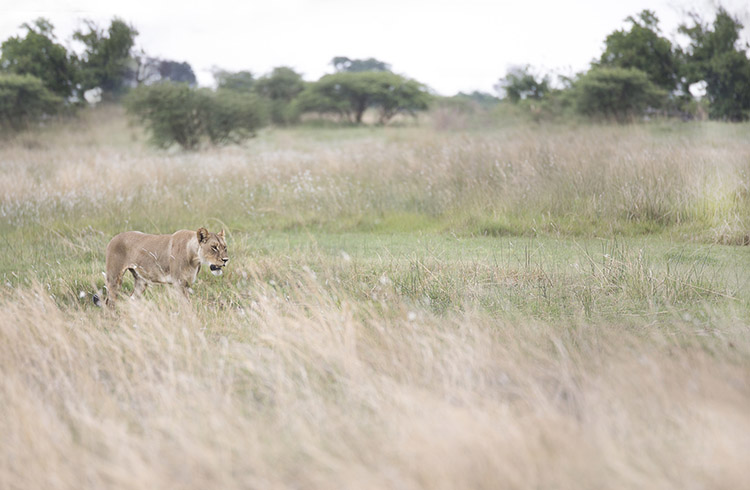
Another amazing moment was when I walked home after dinner one night and in front of me in the pathway I saw something move. When I got the flashlight on it, there was a female leopard lying flat in the middle of the path. Now knowing how fast these animals move and how they can destroy you in seconds you think to yourself, now what? We had a face-off for about three minutes, after which she lost interest and moved off into the thicker bush. I took two giant leaps back home.
9. What type of cuisine do you focus on? Obviously there are different styles to cater for – such as the bush breakfast versus the pontoon lunch versus dinner around the campfire.
I try and do a bit of everything. I like to keep guests guessing. Every meal or meal time needs to be an experience and an adventure. The story you want guests to take home should be one of an experience. You want them to go home and say, “We had this awesome game drive and saw the leopard and wild dogs. Then we arrived at the pontoon, left the dock and cruised on the lagoon, enjoying Pierre’s fresh lunch in the midst of one of the hippo families in the lagoon.” That is an experience not every guest gets to have when they come to Africa. From breakfast around the camp fire at sunrise the to six course tasting menu at dinner, it’s all an adventure. Food has become such an important part of one’s safari that it needs to be just as interesting and exciting.
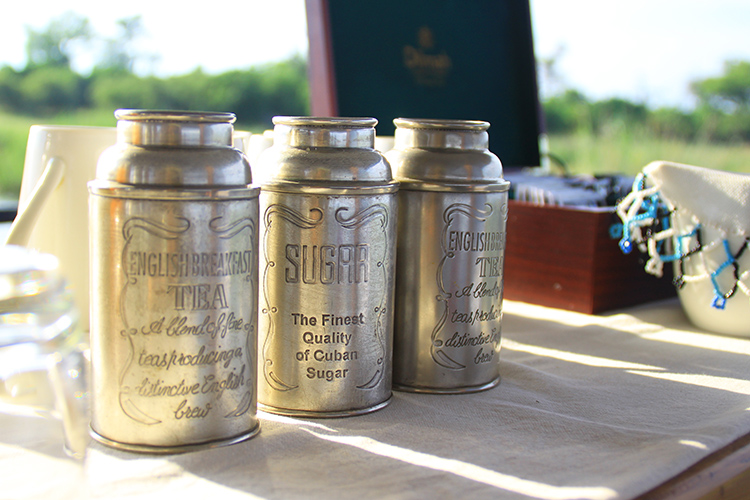

10. What drives you as a chef and gives you a sense of purpose and satisfaction?
Nothing feels better than hearing guests rave about the food. When you plan a dish or a menu and you’ve worked on it all day, the moment when it comes together and the plate leaves the kitchen exactly as you wanted it to be, you know that your guest is experiencing something they cannot find anywhere else in Botswana. That is a great feeling and it makes the next day even more interesting because you know you have to better whatever you did yesterday. A quote I always carry with me is, “Perfection is what I strive for and not its reflection on me”.
Visit our website to discover more about Zarafa Camp and going on a gourmet safari in Botswana or elsewhere in Africa.
